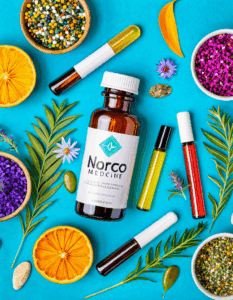The Complex Dance of Parenting and Addiction: Unraveling the Ties
Nothing could truly prepare any soul for life’s roller-coaster ride, especially when that ride weaves through the realm of parenting and addiction. With situations so entwined, pulling apart the threads of these layered dynamics could become as puzzling as a jigsaw.

The Layered Dynamics of Addiction and Parenting
Every parent-child bond is unique, as diverse as the threads that weave the social fabric. The introduction of drug abuse might make the cloth seem stained, yet it’s possible to mend – even in strained relations. Addiction and parenting blend into a cocktail that leaves both parties tip-toeing around each other, laden with fears of slipping down a slippery slope.
Studies suggest that our parenting style shapes the future of our children significantly. As published on Jan 14, 2016, a neglectful parenting style was found to increase the susceptibility to substance use among children. In essence, how we parent can influence addiction outcomes.
Parenting Through Your Adult Child’s Addiction Making Sense of Treatment, Aftercare, and Recovery Recommendations
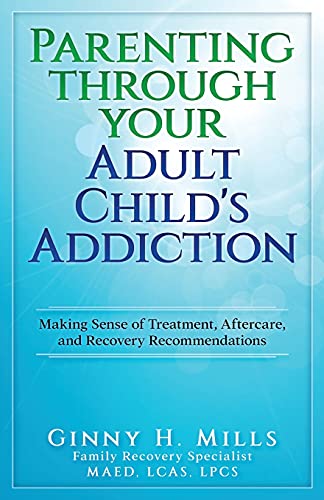
$14.99
“Parenting Through Your Adult Child’s Addiction: Making Sense of Treatment, Aftercare, and Recovery Recommendations” is a comprehensive guide for parents whose adult children are struggling with addiction. It is a well-researched resource that seeks to provide a clear understanding of the complexities of addiction treatment, the importance of aftercare, and the steps towards recovery. Each page of the book is laden with practical strategies, heartfelt advice, and real-life examples that help parents navigate through this challenging journey.
The book focuses on equipping parents with insightful knowledge about the nature of addiction, emphasizing the importance of professional help, while also teaching how to manage their emotional turmoil during this difficult time. Alongside this, it offers practical advice on understanding various treatment options, how to support your child through aftercare, and hopeful thoughts on recovery. This guide aims to empower parents, helping them make informed decisions during their adult child’s journey from substance abuse into sobriety.
Moreover, “Parenting Through Your Adult Child’s Addiction” seeks to foster a sense of resilience and hope. Throughout the book, parents will learn how to maintain their sanity while dealing with their child’s addiction and how to create a supportive environment that encourages recovery. Furthermore, it emphasizes the importance of self-care for parents, ensuring they have the strength and mindset to continue standing alongside their child in their battle against addiction. This is an invaluable resource for any parent facing a child’s addiction, providing them with knowledge, understanding, and the confidence to face the journey ahead.
Impact of Addiction on Parenting Responsibilities
On the flip side, we can’t downplay the enormous influence addiction can have on parenting responsibilities. As a parent saddled with a substance abuse problem, the charge to guide, protect, and provide could become almost unbearable. As researched by Jessica Henwick, addiction consumes not only the person in its grip but eats into the essence of parenting as well.

Decoding the Silent Cry: When My Children Stir My Own Sobriety
Battling addiction while parenting requires a great deal of resilience – picture mastering the art of surfing turbulent waves. The phrase ‘my children stir my own sobriety’ aptly captures this challenging journey.

Immersion: Navigating through the Waves of Temptation
For those of us wrestling addiction, the swirling temptations can drag us in as quickly as a riptide tugs. Our children become metaphoric anchors, steadying our resolve to stay afloat amidst the sea of cravings, firmly reminding us of the need to stand strong.
The road towards sobriety is often tumultuous, filled with obstacles that might seem insurmountable. Yet the power of our children’s love, their innocence, and their need for us to guide them can spur the resolve to break free from addiction and regain control.
Essential Coping Skills Cards Exercises for Stress Management, Anxiety Relief Build Emotional Agility, Resilience, Confidence Self Care Therapy Games for Teens, Adults by Harvard Educator
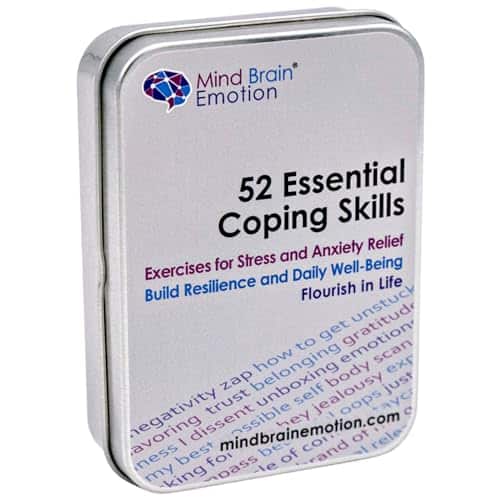
$24.99
Essential Coping Skills Cards by Harvard Educator is a comprehensive set of exercises and games designed for stress management, anxiety relief, and building emotional agility, resilience, and confidence. Perfect for both teens and adults, this product offers an engaging and tactile approach to self-improvement and self-care therapy. Each card is thoughtfully curated with unique activities that promote mental health and wellness, enhancing personal growth and overall mental resiliency.
With input from a Harvard Educator, these therapy game cards are steeped in scientifically-proven techniques and strategies that foster emotional fluency and improved decision-making skills. Each card has a specific directive, modeling coping skills and behaviors to manage stress and anxiety, providing a supportive tool for individuals who might feel overwhelmed in difficult situations. Using the latest research in neuroscience and psychology, these cards are perfect for individuals seeking to improve their emotional intelligence and self-awareness.
Easy to use and incredibly versatile, these Essential Coping Skills Cards offer a range of opportunities â individuals can use them to practice solo or they can be used as an adjunct tool in a therapeutic setting, offering a fun and interactive way to promote psychological wellbeing. The cards are also a great resource for educators and therapists who seek to provide clients or students with practical, engaging, and efficient methods to build emotional resilience, manage stress, and handle anxiety. Empower your mental health journey with these beautifully designed and highly beneficial Coping Skills Cards.
The Ripple Effect: How Children Influence Sobriety Journey
The impact our children have on our sobriety journey cannot be overstated. Louis partridge, in his work, illustrated this beautifully. He showed that supportive and active involvement from parents, even those dealing with addiction, is critical in the prevention of youth substance abuse.

| Subject | Description | Date | Source |
|---|---|---|---|
| Neglectful Parenting & Addiction | Neglectful parenting style is consistently associated with higher rates of substance misuse in children | Jan 14, 2016 | Academic Study |
| Parent-child Communication & Addiction | Kids are less likely to use addictive substances if parents talk early and often about the risks, set clear rules and consequences, and regularly monitor their activities | N/A | Mothers Against |
| Parental Substance Misuse & Impact on Child | This term refers to long-term misuse of drugs and alcohol by a parent or carer, which often leads to serious health problems and accidents affecting their children | Feb 8, 2024 | Health Report |
| Traumatic Events & Addiction | Children experiencing four or more traumatic events might be five times more likely to become an alcoholic, 60% more likely to be obese, and possibly 46 times more likely to become an injection-drug user | Jul 15, 2020 | Research Study |
The Rising Sun: Reclaiming Roles, Breaking Bondages
Recovery isn’t just about healing from addiction; it is also about reconnecting with our roles as parents. It’s about breaking the chains that hold us from giving our best to the ones we cherish the most.
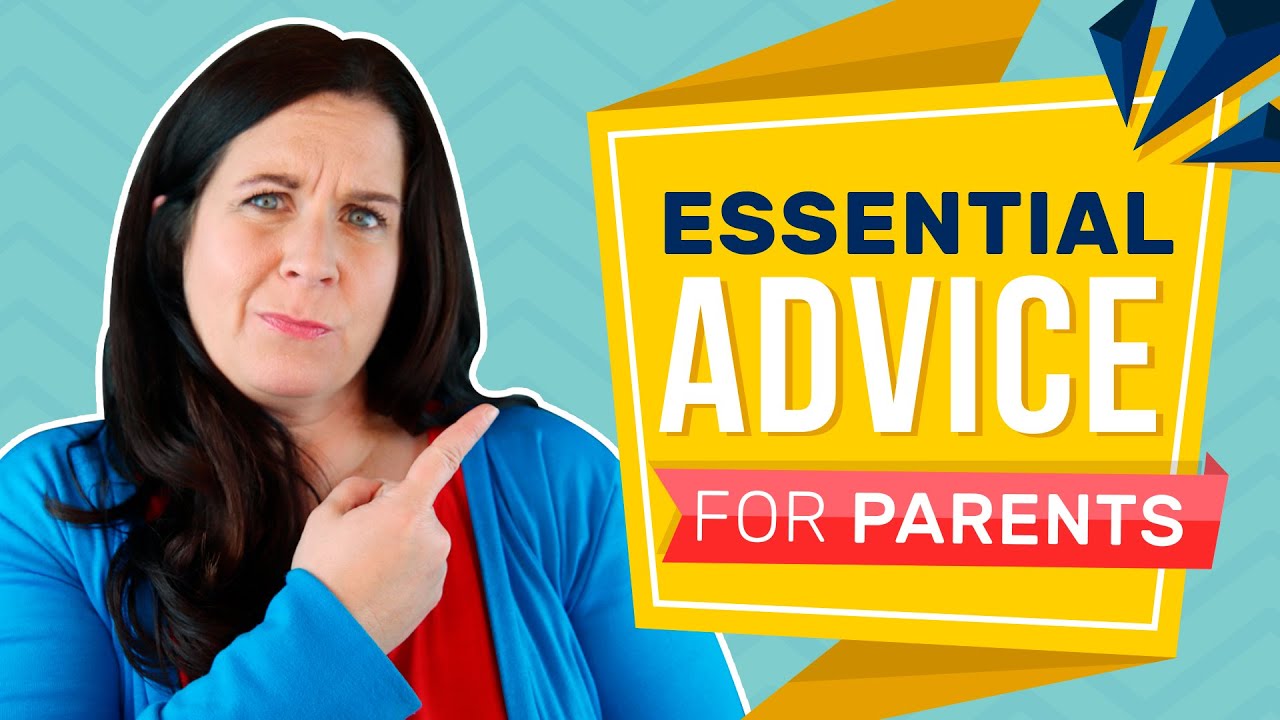
Restoring Relationships: Lessons of Love and Letting Go
Healing relationships marred by addiction requires a delicate balance of love, patience, and the strength to let go. For parents in recovery, reconnecting with our children means recognizing their hurt and working intentionally to restore trust.
For some of us mending our bonds, Moms Of drug Addicts serves as a haven, providing resources and a supportive community tailored to our experiences and unique struggles.
The Addiction Inoculation Raising Healthy Kids in a Culture of Dependence
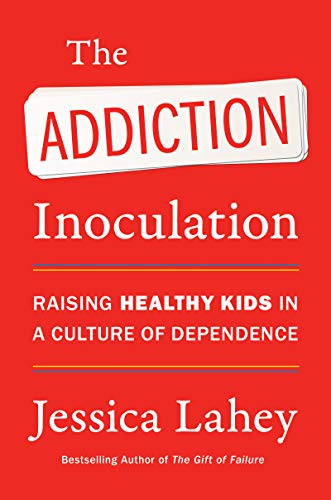
$14.99
“The Addiction Inoculation: Raising Healthy Kids in a Culture of Dependence” is an insightful guide that discloses strategies and methods to prevent and handle substance abuse in children. Expertly penned, this book addresses the increasing presence and acceptance of substance dependency in contemporary society, aiming to not only inform but also to equip parents, guardians, and educators with the knowledge and tools required to curb the prevalence of addiction among the young generation. It explores the root causes of addiction, providing an in-depth understanding of its psychological landscape, leading to a more proactive approach in tackling this issue.
This invaluable resource provides a multi-faceted approach blending cutting-edge research, personal stories, and a comprehensive guide to raise children who are emotionally and physically healthier. It offers the critical understanding that preventing addiction requires addressing it as more than mere disobedience or rebellion. This seminal work challenges societal norms and misconceptions surrounding addiction and equips the readers with actionable steps to build resilience in children.
“The Addiction Inoculation: Raising Healthy Kids in a Culture of Dependence” extends beyond being a standard self-help piece, by emphasizing the role of community and environment in nurturing addictive behaviors. It calls for a cultural revolution to counter the increasing incidence of addiction, emphasizing that it’s a community-driven issue requiring a collective solution. With an empathetic and non-judgmental voice, this book proffers a beacon of hope to everyone struggling with this intricate and often misunderstood issue.
Embracing Imperfection: Parenting and Addiction Recovery as a Journey, Not a Destination
Like a journey with no end, recovery and parenting intertwine, each step bringing its own lessons and challenges. The journey demands courage, resilience, and most importantly, accepting and learning from imperfections. Mistakes and setbacks are inevitable, but they’re their stepping-stones, not stumbling blocks.
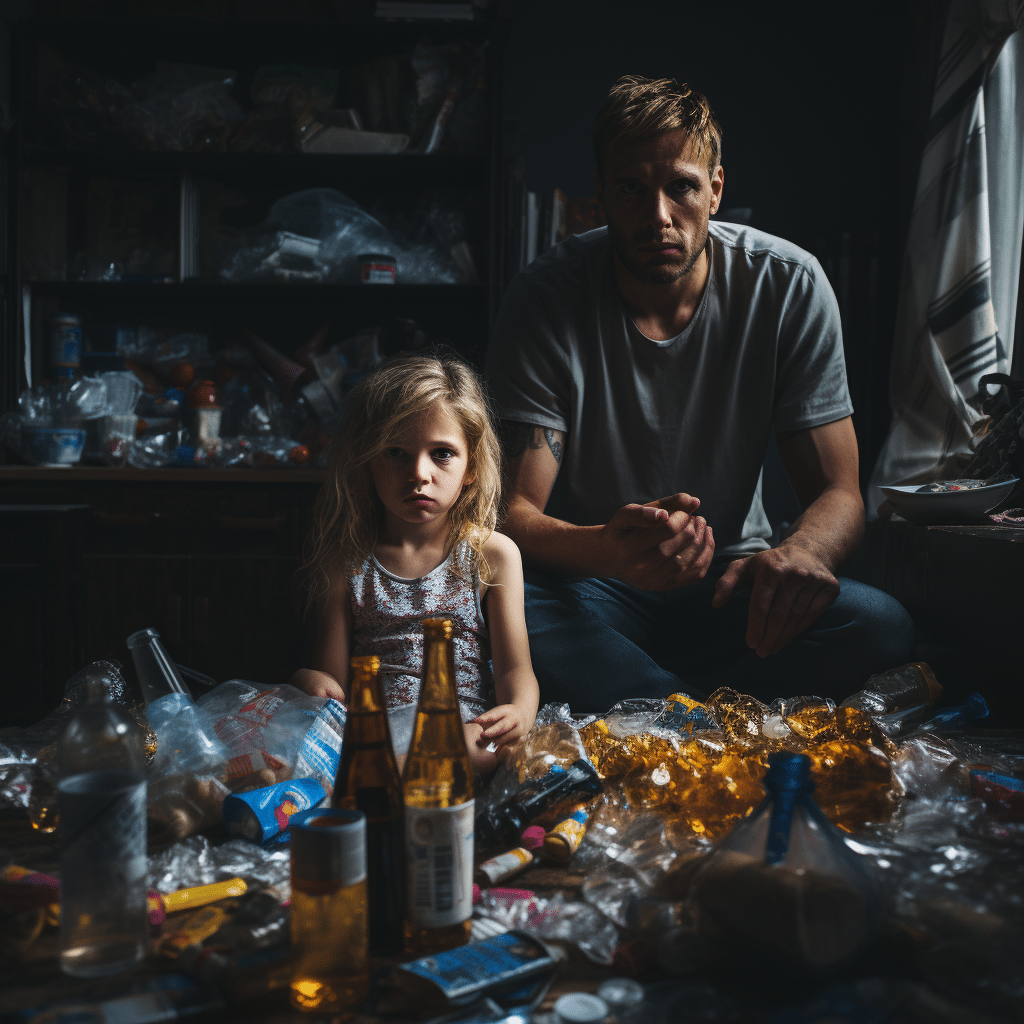
Stepping Stones on the Path of Recovery: Parents and Their Essential Role
Parents hold a unique and instrumental role in the recovery process. Not only do we have the opportunity to break free from addiction ourselves, but we can also support our children toward a healthier, addiction-free life.
Beyond Traditional Roles: Parents as Catalysts in Recovery
Our role as parents extends beyond love and provision; we become models of change and resilience. This can serve to motivate our children as well, setting a precedence for resilience and change, and showing them that recovery is possible.
For those struggling with their parenting role amidst substance abuse, Parents With substance abuse offers a wealth of resources and support, empowering parents to play their part effectively.
The Healing Touch: Efficacy of Parental Support in Recovery Journey
Parental support, love, and understanding can heal wounds that medicines might fail to soothe. A parent’s recovery from addiction is gratifying not just for the parent but also the child – it’s a journey of collective healing and growth.
Addiction Proof Your Child A Realistic Approach to Preventing Drug, Alcohol, and Other Dependencies
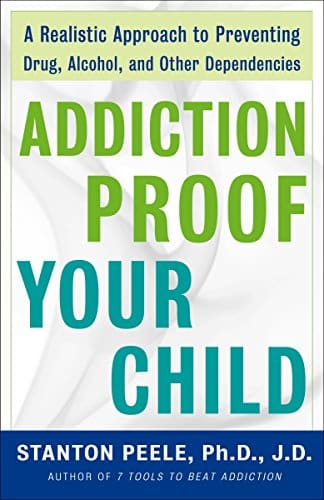
$14.28
“Addiction Proof Your Child: A Realistic Approach to Preventing Drug, Alcohol, and Other Dependencies” is a comprehensive guidebook designed for parents seeking practical advice about shielding their kids from the risk of various forms of addiction. This potent book helps you discern the early signs of substance abuse and recognize the potential risk factors, enabling you to take preemptive action to nip any potential dependencies in the bud. The material presented in the book is based on extensive research and interviews with a variety of experts in the field of addiction and recovery.
The book is filled with practical applications, proven techniques, and profound insights that can aid parents in creating an environment that encourages healthy habits, coping mechanisms, and decision-making skills. A major focus is laid on open, honest, and age-appropriate communication, and approaches vary against different potential substances of abuse. The book is imbibed with relatable anecdotes and practical tips to shape the child’s environment, choices, attitudes and experiences and help them reject the allure of addiction.
“Addiction Proof Your Child” goes beyond just drugs and alcohol, addressing a broad spectrum of potential dependencies that children can fall victim to, including nicotine, prescription medications, and even digital addiction. It offers top-notch advice not only on having optimally-productive conversations with your kids about these challenging issues, but also on how to enforce clear and rational boundaries while still maintaining a strong, trusting and nurturing parent-child relationship. It’s an invaluable resource for every parent who wants to equip their child with the right tools to thrive amidst various addictive temptaitons.
The Domino Effect: Generational Impact of Parenting and Addiction
The impact of parenting and addiction is not limited to the immediate relationship between a parent and child. It echoes down the generational ladder, forming a cycle hard to break yet imperative to address.
What parenting style is most associated with substance abuse?
What parenting style is most associated with substance abuse?
Laid-back or permissive parenting is frequently linked to substance misuse in young people. Often these parents, bless their hearts, try to be their kids’ best pals, letting too many rules slide, leading to difficulties setting boundaries and monitoring their teens.
What is the role of parents in addiction?
What is the role of parents in addiction?
Parents play a crucial role in addiction, both as potential role models or contributors. Like it or not, when parents struggle with addiction, their kids might follow suit. Yet, parents can be pillars of support too, providing necessary help when children grapple with addiction.
What is parental addiction?
What is parental addiction?
Parental addiction is a genuine whammy – when a caregiver becomes submerged in substance misuse or addictive behaviours. It’s akin to a tempest in a teacup, disrupting family dynamics and causing major emotional distress in children.
What is the link between childhood trauma and addiction?
What is the link between childhood trauma and addiction?
Childhood trauma and addiction go hand-in-hand, just like bread and butter. Traumatic experiences might set the stage for substance misuse later in life, serving as a misguided coping mechanism for deep-seated pain.
Which parenting style is most associated with the use of psychological control?
Which parenting style is most associated with the use of psychological control?
Authoritarian parenting often involves psychological control, where parents wield dominant power, dictating rules and offering low levels of warmth. It’s like running a tight ship – too rigid, everything by the book, and little room for a youngster to breathe.
Which parenting style leads to delinquency?
Which parenting style leads to delinquency?
A sounds strange but the laissez-faire or ‘anything goes’ style of parenting can often set the cat among the pigeons, leading children astray. These parents rarely guide their children’s behavior or set limitations, which may contribute to delinquent acts.
How does family influence addiction psychology?
How does family influence addiction psychology?
Family shapes addiction psychology in many ways, and not always in a positive manner. Family history of substance misuse, unhappy homes, or lack of strong bonds can be stepping stones to addiction, as influence starts at home, after all.
Can addiction be genetic?
Can addiction be genetic?
Arguing nature versus nurture is a bit like splitting hairs. But studies do show that addiction can run in the family, just like curly hair or blue eyes. It’s not a sealed deal, but there’s a genetic factor that increases susceptibility to addiction.
What are family factors of addiction?
What are family factors of addiction?
Family factors contributing to addiction are diverse and complex – ranging from neglect, abuse, or lack of emotional bonding, to exposure to drug usage or an addicted family member. In plain English, a toxic family environment can create fertile ground for addiction.
What is parental neurosis?
What is parental neurosis?
Parental neurosis – now there’s a hornet’s nest! It’s when a parent’s excessive anxiety or obsessive behaviors significantly impact daily activities and family interactions, potentially causing emotional distress in children.
How does parental addiction affect child development?
How does parental addiction affect child development?
Parental addiction can really throw a spanner in the works of a child’s development. Italian cookery aside, it can lead to emotional neglect, exposure to harmful substances, or instability in the home, creating a risky environment for a child’s growth.
What is a parent enabler?
What is a parent enabler?
A parent enabler is often caught between a rock and a hard place. These folks inadvertently support their child’s harmful behavior or addiction, typically out of a misguided sense of love or fear of causing conflict. The road to hell is paved with good intentions, after all.
What are the top 3 forms of trauma that lead to addiction?
What are the top 3 forms of trauma that lead to addiction?
The top three forms of trauma that can lead to addiction include physical or sexual abuse, witnessing violent events, and the impact of sudden tragic losses. It’s like carrying a buckload of bricks; the weight of such trauma can lead some people to misuse substances for relief.
Is trauma the root cause of addiction?
Is trauma the root cause of addiction?
Well, trauma isn’t always the be-all and end-all, but it can certainly sow the seeds for addiction. A traumatic experience can create lasting emotional turmoil, leading some folks down the path of substance misuse to numb the pain.
Is all addiction rooted in trauma?
Is all addiction rooted in trauma?
Not all addiction springs from trauma. While trauma can kickstart substance misuse, there are other factors playing their parts, including genetic predisposition, peer pressure, and environmental influences. Essentially, it’s not a one-size-fits-all scenario.
Which parenting style do you think would be most likely to lead to eating disorders in children?
Which parenting style do you think would be most likely to lead to eating disorders in children?
Authoritarian parenting, with its iron grip, can sometimes trigger eating disorders in children. Rigidity around dietary habits or excessive focus on weight can push a child’s need for control into disordered eating.
Which is the most commonly used parenting style?
Which is the most commonly used parenting style?
The authoritative parenting style takes the cake for being the most common. This approach features a combination of rules and warmth, being firm but fair. It’s about giving kids structure while letting them spread their wings.
What are the 4 styles of parenting based on?
What are the 4 styles of parenting based on?
The four parenting styles – authoritative, authoritarian, permissive, and uninvolved – are based on two key aspects: responsiveness and demandingness. It’s like baking a cake; the quantity and quality of these components can significantly alter the end result.








